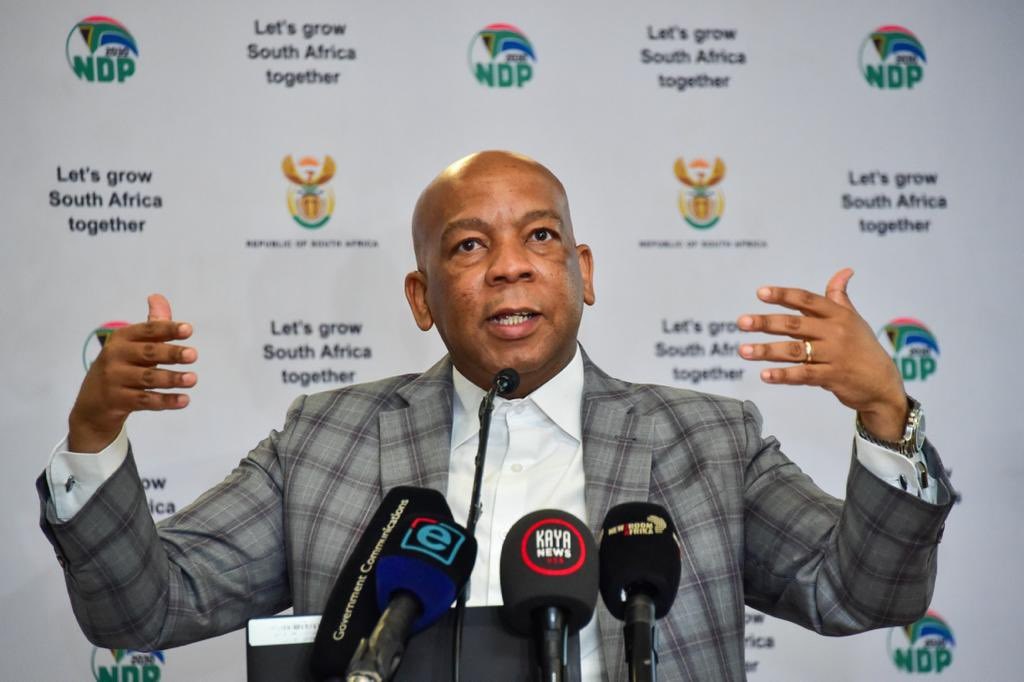Lungile Ntimba
Electricity Minister Dr Kgosientsho Ramokgopa, has announced that the Ministerial Determination for the procurement of 2 500MW of nuclear energy, has been withdrawn during a media briefing in Pretoria on Friday.
Anti-nuclear lobby groups had put the National Energy Regular of South Africa (Nersa) under pressure and had threatened legal action claiming that the procedure to procure nuclear energy had been unfair and that public comment was not solicited.
“I have taken the decision…to withdraw the gazette to allow for that public participation to happen.
“The only time we got to know and be alerted that the process was not subjected to a public consultation process is when the [court] papers were filed and the Minister took the decision that we are withdrawing the gazette; we allow for that public participation so that the process is clean…and transparent,” said Ramokgopa.
The withdrawal comes ahead of a scheduled court case initiated by the Southern African Faith Communities’ Environment Institute (SAFCEI) and Earthlife Africa Johannesburg, which are contesting the legality of the gazetted Section 34 determination signed by Ramokgopa.
The matter was scheduled to be heard on October 15 and 16.
The two environmental groups argue that the determination is unlawful and unconstitutional, owing to various procedural irregularities, including a failure of the Nersa to consult with the public before concurring with the determination.
In 2023, Nersa provided conditional concurrence with the determination, while outlining several suspensive conditions, including establishing, through a demand and generation profile analysis, the rationality of adding 2 500 MW of nuclear, and confirmation that engineering, procurement and construction contract principles would be used during the procurement phase.
The then Department of Mineral Resources and Energy (DMRE) subsequently submitted a report outlining how the suspensive conditions had been met, leading Nersa to provide its full concurrence, which resulted in Ramokgopa, who was Minister in the Presidency responsible for electricity at the time, gazetting the determination.
However, SAFCEI and Earthlife Africa Johannesburg lodged a legal objection stating that Nersa had failed to meet its obligation to subject the DMRE report to public consultation, and that its concurrence was, thus, illegal.
They also raised concerns that the determination was based on an outdated Integrated Resource Plan, or IRP 2019, which was not only in the process of being updated, but also had never included new nuclear capacity as part of the electricity generation mix for the 2030 planning horizon.
In announcing the withdrawal, the Minister acknowledged that any new determination should be in line with an updated IRP and promised that his ministry, which is in the process of been unbundled from the DMRE in line with the new portfolios announced as part of the Government of National Unity, was prioritising the update of the plan.
He again promised consultation with those stakeholders that had made “substantive” input on the draft IRP 2023 and also indicated that an expert body would be formed in parallel to assess the role of new nuclear power in the future mix.
Ramokgopa insisted that the government remained committed to procuring new nuclear capacity in line with its stated policy that such capacity be introduced at a pace and scale that the country could afford.
SAFCEI and Earthlife Africa welcomed the Minister’s announcement, describing it as a positive outcome.
“We uphold that transparency in government decision-making is a cornerstone of our democracy,” Ramokgopa said.
Additionally, Ramokgopa said it is proper that the government extend an opportunity for parties to evaluate, examine and critique responses to the report.
Ramokgopa said he is aware that the decision could result in the process to be delayed but is happy that each and every entity in the country is given an opportunity to add their voice.
“We are happy to do that as long as we protect the integrity of the process so there is general public confidence” Ramokgopa said.
INSIDE POLITICS



